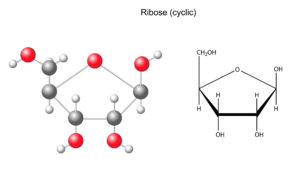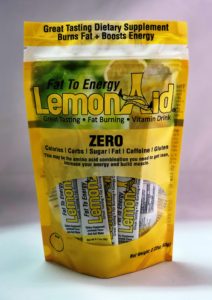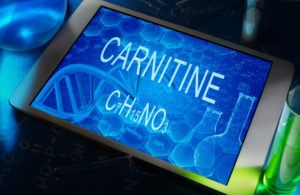Science
 Regardless of what your fitness, body building or weight loss goals are, losing fat or gaining muscle, your chances of success will increase greatly with our proprietary combination of great tasting L-carnitine and D- Ribose.
Regardless of what your fitness, body building or weight loss goals are, losing fat or gaining muscle, your chances of success will increase greatly with our proprietary combination of great tasting L-carnitine and D- Ribose.
And Fat to Energy LemonAid® tastes great, just like lemonade. Carnitine is named from Latin for ‘flesh,’ and was discovered in muscle tissue one hundred years ago (Gulewitsch & Krimberg, 1905).

- L-carnitine is naturally occurring in all foods especially in dark meats such as lamb and beef.
- Studies suggest that L-carnitine increases the burning of fat as a fuel source by transporting fat into the mitochondria of the cell to be converted into energy.
- L-carnitine has also been shown to promote increased energy and can contribute to healthful dieting when looking for support in suppressing appetite.
- L-carnitine supports your muscles by helping to increase your lean muscle mass and strength.
- D-Ribose is essential for adenosine triphosphate (ATP) production, the primary source of energy used by all cells in the body.
- ATP production is accelerated during exercise.
- D-Ribose helps optimize athletic performance.
- D-Ribose helps provide the energy boost your body needs keeping your muscles, heart and brain energized.

“…Carnitine plays a vital role in the regulation of muscle fuel metabolism.”
Francis B Stephens, Dumitru Constantin-Teodosiu, and Paul L Greenhaff. New insights concerning the role of carnitine in the regulation of fuel metabolism in skeletal muscle. J Physiol. 2007 Jun 1; 581(Pt 2): 431–444. Published online 2007 Mar 1. PMCID: PMC2075186
“In summary, this is the first study to demonstrate that muscle carnitine content can be increased in humans by dietary means and, perhaps more importantly, that carnitine plays a dual role in skeletal muscle fuel metabolism that is exercise intensity dependent.” Chronic oral ingestion of L-carnitine and carbohydrate increases muscle carnitine content and alters muscle fuel metabolism during exercise in humans. Benjamin T Wall, Francis B Stephens, Dumitru Constantin-Teodosiu, Kanagaraj Marimuthu, Ian A Macdonald, and Paul L Greenhaff. J Physiol. 2011 Feb 15; 589(Pt 4): 963–973. Published online 2011 Jan 4. PMC3060373
“Carnitine supplementation also had an ergogenic effect and was shown to increase work output by 11% in a performance trial with a fixed duration of 30 min.” Boosting fat burning with carnitine: an old friend comes out from the shadow. Kent Sahlin PMC3099008
“L-carnitine forklifts fatty acids into the mitochondria.” Safeguarding Muscle During Weight Reduction, The Medscape Journal of Medicine, Ingrid Kohlstadt, MD, MPH, FACPM, FACN, PMC3099008
“This is the first investigation to conclusively demonstrate that oral L-carnitine supplementation results in an increase in long-chain fatty acid oxidation in vivo in subjects without L-carnitine deficiency or without prolonged fatty acid metabolism.” Effects of oral L-carnitine supplementation on in vivo long-chain fatty acid oxidation in healthy adults. Müller DM1, Seim H, Kiess W, Löster H, Richter T. Metabolism 2002 Nov;51(11):1389-91. PUBMED/12404185
“We conclude that the choline-induced decrease in serum and urinary carnitine is buffered by carnitine preloading, and these supplements shift tissue partitioning of carnitine that favors fat mobilization, incomplete oxidation of fatty acids and disposal of their carbons in urine as acylcarnitines in humans.” Hongu N, Sachan DS. Carnitine and choline supplementation with exercise alter carnitine profiles, biochemical markers of fat metabolism. J Nutr. 2003 Jan;133(1):84-9. PUBMED/12514272

 Regardless of what your fitness, body building or weight loss goals are, losing fat or gaining muscle, your chances of success will increase greatly with our proprietary combination of great tasting L-carnitine and D- Ribose.
Regardless of what your fitness, body building or weight loss goals are, losing fat or gaining muscle, your chances of success will increase greatly with our proprietary combination of great tasting L-carnitine and D- Ribose.